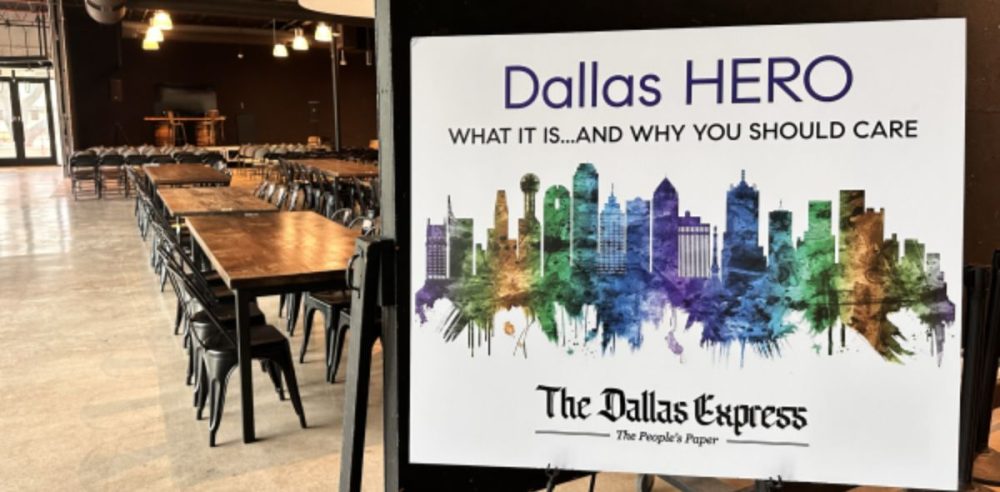Three public-safety themed propositions to the Dallas City charter, known as the HERO amendments, gained major traction with voters as two of the amendments were passed by city residents with all precincts reporting.
Amendments S, T, and U were added to the ballot after more than 170,000 city residents stepped up and signed a petition to get them included on the ballot.
The shocking outcome came after the city’s political establishment pumped big money into an effort to defeat the citizen-driven changes to the City Charter.
These amendments called for creating performance incentives for the City manager, increase pay for police officers, require the city to hire roughly 1,000 additional officers, improve the Dallas Police & Fire Pension System, and enable citizens to file lawsuits against City officials who do not abide by the Dallas City Charter, Dallas City Code, or state laws.
Amendment S, which allows residents to sue the city if officials don’t comply with local ordinances and charter amendments, was trending toward passage at 55% to 45%, with all precincts reporting. The results had not yet been certified as of 3:30 a.m.
Amendment T, related to the City Manager, appeared to fail by a 45% to 55% margin.
However, Amendment U, which would boost police staffing and ensure 4,000 Dallas officers are on the beat, in addition to boosting their pay, was on pace for approval with 51% in support, 49% against.
“I think people are realizing that we are one or two election cycles away from looking like a degenerate city like Portland, Oregon,” Dallas HERO Executive Director Pete Marocco told The Dallas Express prior to the election.
Amendment S is the most powerful of the propositions. It allows Dallas citizens of standing to sue the city for violating any aspects of the City Charter, city code or state laws.
For example, a citizen could sue to hold the city to its mandate of having three police officers for every 1,000 Dallas residents.
The HERO amendments also may serve as a blueprint for safety-conscious citizens to enact government changes in cities where crime and homelessness have impacted businesses and the quality of life of residents.
Before the dust had a chance to settle on the HERO accountability amendments, Dallas city officials, including five council members and at least four staffers, had already planned to travel to Tokyo to study Japan’s high-speed rail system, a trip expected to cost around $50,000, funded partly through hotel occupancy taxes, WFAA reported.
The trip’s purpose is to gather insights on rail infrastructure to inform future plans for a proposed Dallas-Houston high-speed rail.
Delegates will meet with Japanese rail officials, government leaders, and American diplomats, focusing on economic development around stations.


